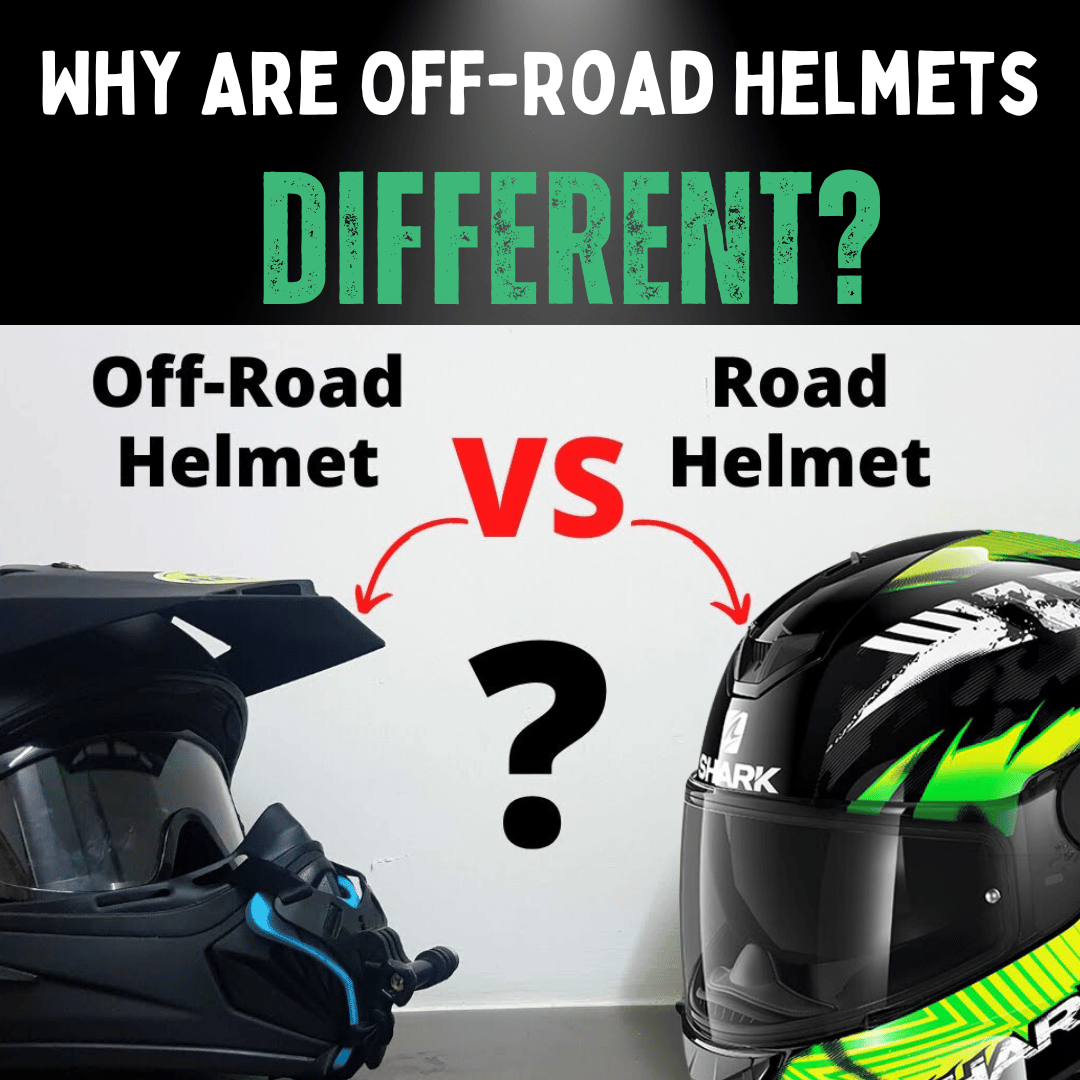
Updated: 08.05.25
Whether you're shredding trails on a dirt bike, tackling rugged terrain in an ATV, or flying down a mountain bike path—your helmet isn't just gear; it's your lifeline.
But have you ever wondered why off-road helmets look and feel so different compared to regular road helmets?
Let’s break it down.
In this guide, we explore why off-road helmets are built the way they are—and why that matters every time you head off the beaten path.
What Makes Off-Road Helmets So Different?
Special Features That Set Them Apart
Unlike road helmets, off-road lids are designed for the physical demands of dirt tracks, uneven surfaces, and long rides under the sun.
They’re:
- Lighter for better neck mobility and less fatigue
- Optimised for ventilation
- Compatible with goggles
- Built with extended chin protection
Related: Why Do Dirt Bike Helmets Have Visors?
Helmet Construction and Materials
What’s inside your helmet matters as much as what’s outside.
Common Materials
Off-road helmets are usually made from:
- Polycarbonate – Budget-friendly, heavier
- Carbon Fibre – Lightweight, strong, professional-grade
- Composite Shells – A balanced mix of weight and durability
Performance Impacts
Lighter materials like carbon fibre reduce rider fatigue and improve balance. They're also more effective at dispersing energy during impacts.
Why Weight Matters
“A pound off your helmet is like five off your back.”
Less weight equals less strain, especially over long rides. It also makes it easier to keep your head up during aggressive terrain navigation.
Airflow and Comfort
Lightweight helmets often come with better vent placement, making it easier to stay cool—especially with goggles on.
Finding the Right Fit
Like your favourite riding boots, a good helmet must fit just right.
How to Measure Your Head
Use a soft tape measure across the widest part of your head—just above your eyebrows and ears. Match that number to the brand’s sizing chart.
Related: Get The Right Motorcycle Helmet Fit
Fit = Safety
A snug helmet should stay in place without pinching. No wobble. No pressure points.
Ventilation: Built to Breathe
Off-road rides are intense. Proper airflow is critical.
- Larger vents = better cooling
- Improved circulation = more focus, less sweat
Road helmets are designed to cut wind at high speeds. Off-road helmets are all about keeping you cool at low speeds.
Keeping It Clean
Maintenance Tips
- Use mild soap for the shell
- Remove and wash padding regularly
- Inspect for wear after every big ride
Related: How to Clean Your Dirt Bike Helmet
When to Replace
If your helmet’s seen a crash, has visible damage, or feels loose—it’s time to upgrade.
Eye Port and Goggle Room
Bigger eye ports mean you can wear goggles with ease. It also widens your field of vision—critical when scanning for obstacles or lining up your next jump.
Advanced Safety Features
MIPS Technology
Some helmets include a low-friction layer (MIPS) that helps reduce rotational forces during angled impacts.
Layered Padding
Multiple-density foam liners help absorb shock better than a single layer.
Where’s the Visor?
Off-road helmets ditch the traditional visor for open eye ports. This boosts airflow and lets riders use their preferred goggles instead.
Related: Visor vs Goggles: Which Is Better?
Don’t Forget the Chin Guard
This piece helps protect your jaw in case of face-first falls—a must in off-road riding where faceplants are a reality.
Safety Certifications
Look for:
- DOT – U.S. Department of Transportation
- ECE – Economic Commission for Europe
- SNELL – Independent high-standard safety testing
Never buy a helmet without proper certification labels.
Aerodynamics and Sound
Off-road helmets aren’t about top speeds. Their design focuses on comfort, protection, and visibility—not wind resistance. This can make them noisier than road helmets, but that’s a small trade-off for better airflow and goggle room.
Off-Road vs Road Helmets: The Bottom Line
Road helmets protect you at high speeds on smooth asphalt. Off-road helmets protect you at lower speeds across unpredictable terrain.
Choose based on where you ride. It’s that simple.
Conclusion
Off-road helmets aren't just styled differently—they're engineered differently. From airflow and fit to impact resistance and goggle space, every detail serves a purpose.
Make sure your helmet suits your terrain and riding style. Your safety depends on it.
Ready to upgrade? Start your off-road adventure with the right gear today.






Share:
How Tall Do You Have to Be to Ride a Motorcycle?
Who Invented the Dirt Bike? - Evolution of Dirt Bikes